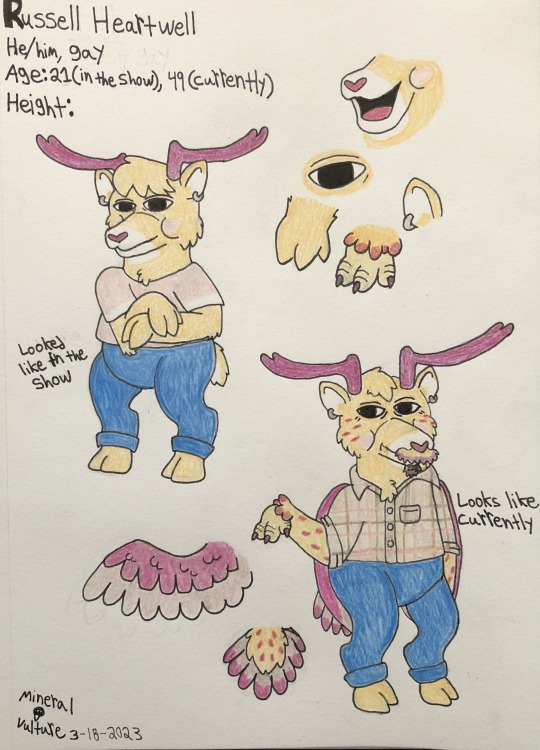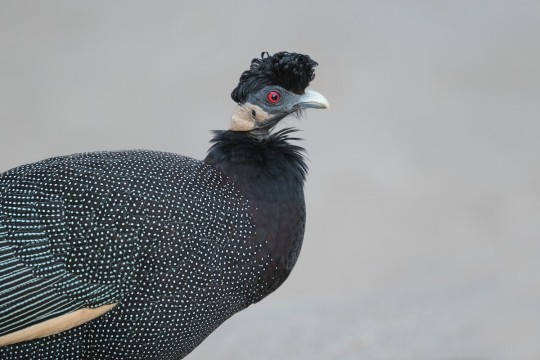#crested guineafowl
Explore tagged Tumblr posts
Photo

Crested guineafowl (Guttera pucherani) by Linda De Volder Kenya Guineafowl (Guttera pucherani)
110 notes
·
View notes
Text

Wtf Timothee Chalamet bird
8 notes
·
View notes
Text

Haubenperlhuhn, Guttera cristata | Die Vögel (1913) | Alfred Edmund Brehm (1829-1884) | Biodiversity Heritage Library
5 notes
·
View notes
Text

Pintade Huppée - Lorsqu'elle est à la recherche de nourriture, elle déambule tête baissée en quête de fruits tombés qui se trouveraient sur son chemin.
Lieu : Pairi Daiza, Belgique
#zoo#animaux#animals#animaux domestiques#photo animalière#animals photography#oiseau#bird#animaux sauvauges#wild animals#pintade#pintade huppée#pintade de pucheran#crested guineafowl#guineafowl
1 note
·
View note
Text






gnfBirds
#posts with a target audience of Me#in order the birds are crested guineafowl bare-faced cussarow and blue-billed cussarow :)#post
76 notes
·
View notes
Text

Tyki Mikk as Crested Guineafowl
#fanart#art#dgm#my art#dgm tyki#tyki mikk#NO REALLY THIS BIRD IS ABSOLUTELY SERVING I CAN HEAR IT SAY SHOUNEN AND RUN WITH A MADMAN LAUGH#HEAR ME OUT#TYKI IS SN ABSOLUTE BIRD#HE BE STUPID ASS ALL BRAIN SPACE STOLEN BY FANCY HAIR
37 notes
·
View notes
Text
Need help from non-showoffs
Looking to add to this list of birds. Well-known, regular birds that people have heard of. I'm sure I'm missing plenty. Not obscure birds. Please reply with any known, normal birds that come to mind. These are generally going to be one-word names, sometimes two. Thank you for resisting the urge to show off and help me list some birds <3 I'm not even going to call this a tumblr-specific urge; it's a lot of people online urge.
Good examples: parrot, cardinal, parakeet Bad example: Eastern Crested Guineafowl I'll allow it from MASH side of tumblr only: Mud hen
Eagle Sparrow Robin Oriole Buzzard Vulture Blackbird Bluebird Blue Jay Hummingbird Mockingbird Dove Wren Crow Raven Duck Chicken Turkey Swan Goose Hawk Pigeon Flamingo Owl Seagull Pelican Peacock Crane Penguin Pheasant Canary
14 notes
·
View notes
Note
if you were able to keep as many birds as you wanted and like, all their habitats were perfect and maintained and the laws all allowed it and everything, how many birds would you have and what species??
wooooooooooo baby i wish i could upload pictures of all of them but there's a limit of 30 per post and that's nowhere near enough adfasfasdf. soooooo here's the official list of all of my favorite birds!
blue jay, eurasian jay, stellers jay, black collared jay, azure jay, northern cardinal, vermillion cardinal, desert cardinal, pileated woodpecker, great spotted woodpecker, red bellied woodpecker, eastern bluebird, mountain bluebird, gold finch, blue finch, scarlet finch, strawberry finch, rose finches, zebra finch, purple breasted sunbird, violet backed starling, blue vanga, blue dacnis, grandala, indigo bunting, lazuli bunting, rositas bunting, varied bunting, variegated fairy wren, splendid fairy wren, superb fairy wren, white winged fairy wren, philippine fairy bluebird, asian fairy bluebird, taiwan blue magpie, himalayan monal, tui, ravens, crows, blue crowned pigeon, victorian crowned pigeon, american robin, pink robin, lilac-breasted roller, european roller, indian roller, flying roller, blue-bellied roller, malachite kingfisher, woodlands kingfisher, azure kingfisher, rose-crested fruit dove, superb fruit dove, dracula parrot, hyacinth macaw, blue bird of paradise, anna's hummingbird, swordbilled hummingbird, swallowtailed hummingbird, fiery-throated hummingbird, lesser violetear, crowned woodnymph, blue chinned sapphire, mute swan, black swan, black-necked swan, bohemian waxwing, spangled cotinga, banded cotinga, brazilian tanager, australian diamond firetail, flame bowerbird, asian golden weaver, golden pheasant, malayan peacock pheasant, south philippine dwarf kingfisher, guineafowl, green junglefowl, blue-grey tanager, malachite sunbird, great sapphirewing, ruby-topaz hummingbird, fiery topaz, crimson topaz, rainbow bearded thornbill, violet sabrewing, long-tailed sylph, red-tailed comet, variable sunbird, helmeted woodpecker, red-crested cardinal, blue-winged mountain tanager, cinnamon hummingbird, antillean crested hummingbird, violet capped woodnymph, sparkling violetear, blue pitta, mandarin duck
7 notes
·
View notes
Text

Another ref sheet for another oc from my toon world setting. More specifically The Rainbow Gang setting.
Russell in the fictional show The Rainbow Gang was a minor character who got increased appearances due to popularity with fans because of his design, sweet level headed personality, and for the subtext of him being gay.
His first appearance had him on the university campus be surrounded by girls fawning over him. Two of the main characters both develop a crush on him which leads to both fighting for his attention. Throughout the episode they keep one upping the other, putting a wedge in their friendship. This results in the two of them arguing and Russell stops them. He tells them that he doesn't like the attention he gets from all the girls on the campus and that includes them. Russell also tells them they shouldn't be throwing away their friendship just for some guy. For some this episode was surprising since most would assume he would be a douche who uses women to feed his ego but this made fan endeared to him.
He would appear in other episodes either in the background or in small roles such as helping one of the characters find a lost bird since he is a bird keeper. Though the most well remembered episode of his starred Rad Mitch, an anthro Crested Guineafowl, desiring to be more popular with the ladies. He notices how much attention Russell gets and puts together a plan to ask him for help. He does and while Russell is reluctant Mitch is desperate so Russell obliges. He helps him out which results in the two hanging out a lot which both enjoy each other's company. The help works and Mitch gets a lot of attention from women but it becomes too much since this cuts into his and Russell's hanging out time. Mitch has a nightmare of a crowd dragging him and he is drowning in it. Then a winged Russell flies down and saves him. Mitch goes to Russell for help to undo all the things he learned which they both figure out how Mitch can get less attention from women. The plan they do works and Mitch and Russell continue to hang out together.
After the show ended there were fans who would remember this character and would look back on certain episodes (especially the Mitch episode) picking up hints about his sexuality. When the creator of the series passed away and an art book got released it was shown inside that Russell is in fact gay but also he was meant to be a hybrid of a deer and a bird. Showing a drawing what his design was suppose to be. But it was changed into him just being an anthro deer.
Nowadays in toon world, Russell is able to be who he was meant to be. An openly gay hybrid and is now older than he was in the series. He continues his bird keeping by fostering rescue birds.
#ref sheet#traditional art#anthro#toon#original character#furry#deer#bird#deer bird hybrid#hybrid#Russell Heartwell#Pierce's characters#mineral vulture art
6 notes
·
View notes
Text
Africa’s Most Bizarrely Named Birds: A Quirky Guide to Feathered Wonders!
Africa’s birdlife is legendary, but some species stand out—if not for their looks, then for their bizarre names! Ready for an avian adventure? Let’s uncover these quirky characters. 🧵
First up, The Drunken Parrot! - In southern Africa, parrots are infamous for feasting on marula fruit that ferments on the ground. The result? Birds stumbling and squawking like they’ve had one too many! Nature’s comedy at its finest.

The Satanic Nightjar—Its name is as dramatic as its nocturnal habits. This elusive, cryptically feathered bird got its eerie name from its ghostly presence in the night and mysterious calls. Don’t worry—it’s harmless!

The Bare-faced Go-away Bird! - This bird’s name seems like an instruction to leave! The “bare-faced” part is from its featherless patch around the eyes and its unique call that sounds like “go away,” often heard in East Africa’s savannahs mainly in South Africa, Tanzania, Kenya, Namibia, Malawi, Angola, Mozambique, Zimbabwe, and Botswana.

Africa’s Shoebill Stork looks straight out of Jurassic Park. Its name comes from its enormous, shoe-shaped bill. Found in East African swamps, especially in Uganda's Mabamba Swamp. This bird is a must-see for birders!

The Secretary Bird—nothing to do with offices! Its name comes from its quill-like crest that resembles pens tucked behind a secretary’s ear. Plus, it’s a snake-hunting specialist!

Meet the Helmeted Guineafowl—its bony, helmet-like crest makes it look like a soldier of the savannah. This bird is as tough as its name suggests.

Hammerkop—literally translates to “hammerhead” in Afrikaans. Its unique head shape resembles a hammer. These birds build enormous nests—so big they can support a human’s weight!

Consider the Spotted Thick-knee! This nocturnal bird got its name from its large, thick knees (which are actually the bird’s ankle joints!). It’s a ground-dwelling marvel of the savannah.

The Speckled Mousebird—Imagine a bird that looks like a mouse! These small, fluffy birds often climb branches in a rodent-like way, making their name oddly appropriate.

Meet the Red-billed Firefinch! A fiery burst of red in the wild, this bird’s vivid plumage lives up to its blazing name. It’s small, charming, and unmistakably eye-catching.

Imagine a bird skimming across the Nile, its lower beak scooping fish from the water. The African Skimmer is a master of its craft.

Lastly, The African Pygmy Goose! Don’t let the name fool you—it’s a duck, not a goose! This pint-sized beauty loves floating among lily pads.

Nature’s quirks never end! Did we miss a bizarrely named African bird that you love? Let us know in the comments below!
#Birds#BirdsOfAfrica#AfricanBirds#BirdingTours#Birding#africanbirds#BirdingLife#AvianExplorers#BirdersParadise#RareBirdsAfrica#BirdwatchingTrips#AfricanWildlife#BirdSafari#BirdingAfrica#DrunkenParrot#SpeckledMousebird#Hammerkop#AfricanPygmyGoose#AfricanSkimmer#RedbilledFirefinch#SecretaryBird#HelmetedGuineafowl#ShoebillStork#SatanicNightja
0 notes
Video
youtube
Birdwatching Adventure at Manyane Lodge - A Feast for Feathered Friends
Welcome to Manyane Lodge in Pilanesberg Nature Reserve, where our goal was simple: treat the grandchildren and introduce them to the beauty of birdwatching. Armed with a bag of garden bird seed and a bit of papaya, we turned our stay into a haven for some of South Africa's most stunning bird species.
On day one, the first visitors to the feast were the guineafowl and Natal francolin. Soon after, the Grey Lourie (Go-away bird) arrived, drawn to the fruit, followed by the striking crested barbet. The "bospatrys" made its territorial presence known, chasing away larger birds, but it couldn’t stop the Cape starling or the vibrant Crimson-Breasted Shrike from joining the gathering.
The star of the show? The Southern yellow-billed hornbill, whose antics included an amusing battle with its reflection in the windscreen. Over three days, I photographed an incredible variety of species—70 in total!
Captured with my Akaso wide-angle camera to bring you up close to the birds' world, this video is pure and unscripted, letting the birds take center stage as they feast and interact.
Sit back, relax, and enjoy this peaceful birdwatching experience. Let me know in the comments which bird was your favorite!
➡️ Don’t forget to like, share, and subscribe for more wildlife and nature adventures.
4o
0 notes
Text
Wildlife we’ve seen part 4
Birds - Egyptian Goose, Pied Crow, Red-crested Korhaan, Pale Chanting Goshawk, Laughing Dove, Guineafowl, Lilac-breasted roller, Red-breasted Swallow, Yellow-bellied Greenbul, Bee-eater, African Darter. Secretarybird; Mammals - Red Hartebeest Elephant, Black and White Rhinoceros, Genet, Lion, Bat-eared fox, Hippopotamus, Ridgeback, Dachshund 😂; Crocodile, Gecko under gas cooktop; Tigerfish.










1 note
·
View note
Text

“It’s not often you get to capture emotion in the faces of birds,” South African photographer Richard Flack says. “But there was no doubt—that was one satisfied guineafowl.” A crested guineafowl scratches the head of another in Kruger National Park, South Africa.
Richard Flack / Wildlife Photographer of the Year : Smithsonian Magazine #guineafowl #southafrica #richardflack #wildlifephotographer
0 notes
Photo

Crested Guineafowl (Guttera pucherani)
© J. Christopher Haney
53 notes
·
View notes
Photo

Crested Guineafowl (Guttera pucherani)
© Michel Gutierrez
35 notes
·
View notes
